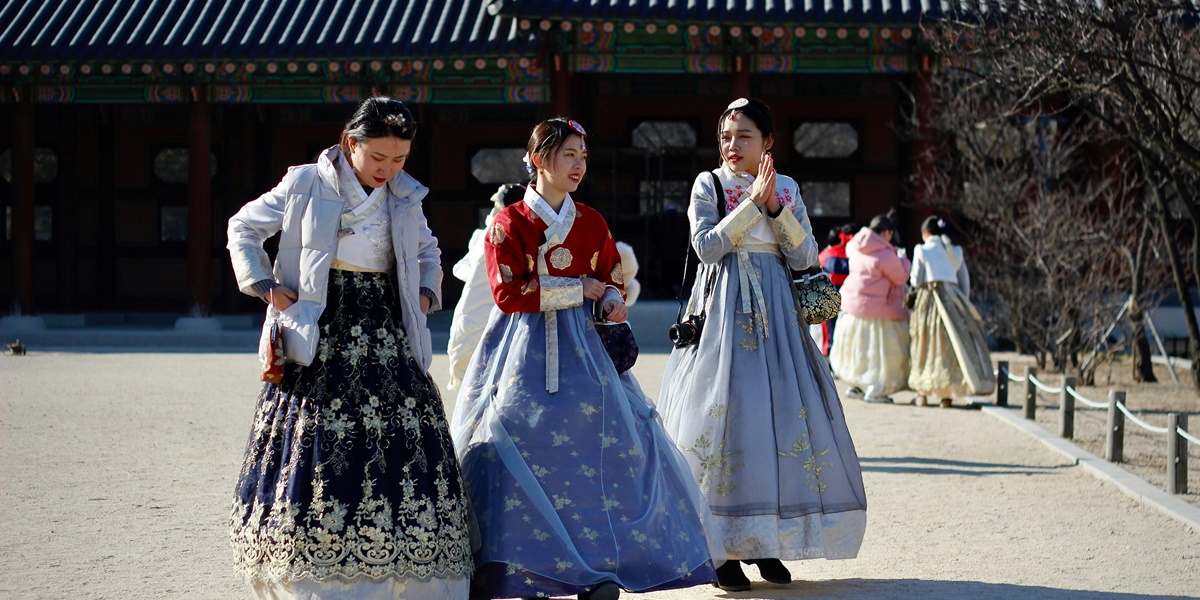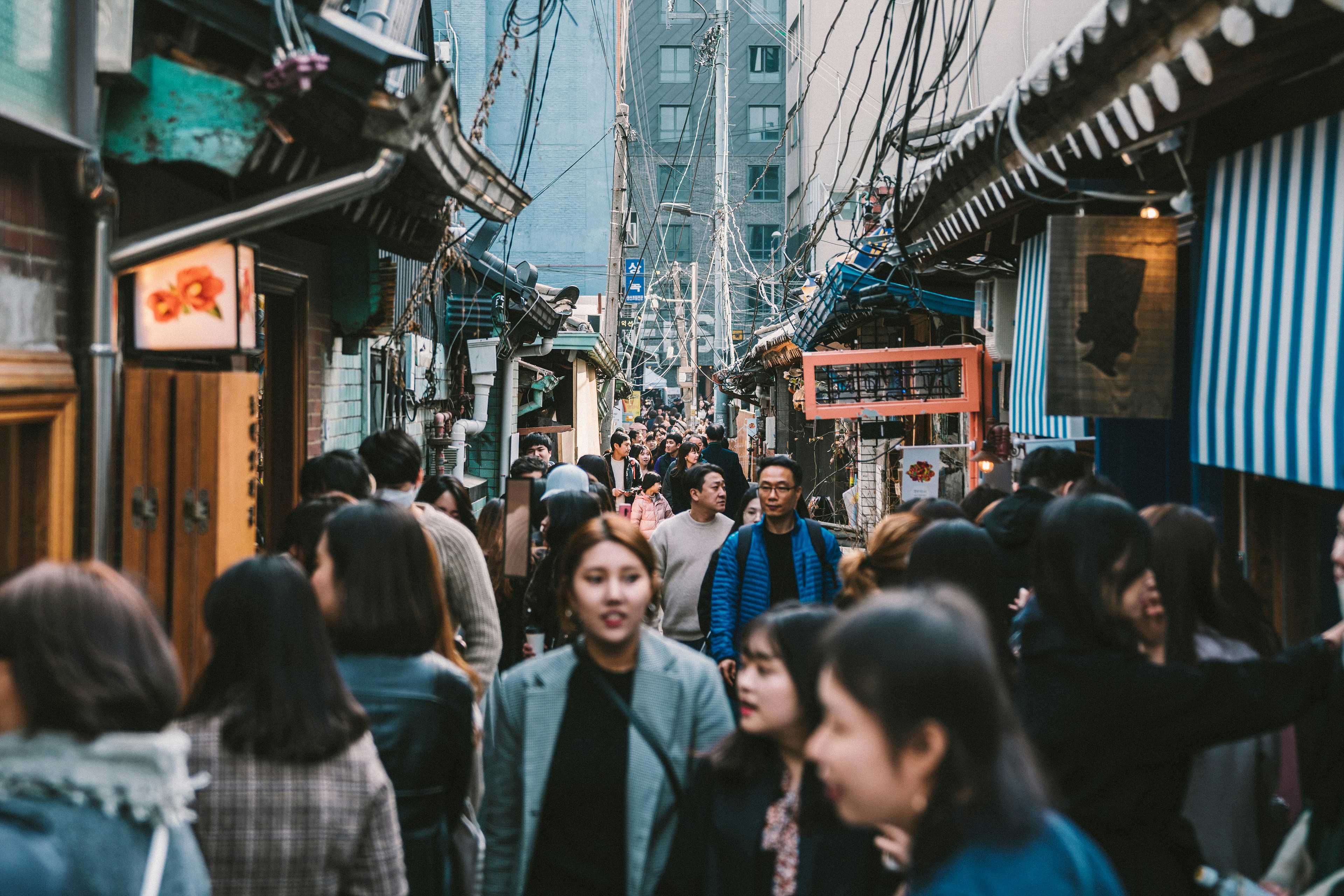3 Ways to Fall Asleep Quickly, Also Pay Attention to These Effective Tips
Curious about how to fall asleep quickly? To find out, just check out the following explanation.

Kapanlagi.com - Thanks to the popularity of drakor, interest in learning the Korean language has now increased significantly. Every day, more and more Korean vocabulary is going viral and becoming popular on social media. The word gwenchana is one such example. The word gwenchana is commonly found in dramas and Korean films, as well as in social media content. So, what does the word gwenchana actually mean?
In fact, it is not only in dramas, films, and social media content that more and more people are using the word gwenchana in their daily lives. The word gwenchana has become a kind of slang vocabulary among young people in general, not just among K-pop fans and drakor viewers. Therefore, the meaning of the word gwenchana has now become an interesting and important thing to know.
So, to find out what the meaning of the word gwenchana and its various variations in formal and informal contexts are, let's directly look at the following review.

Meaning of the Word Gwenchana (credit: unsplash)
Gwenchana in Korean has a broad meaning. However, generally speaking, in Korean, the meaning of the word gwenchana is 'it's okay'. Furthermore, this word is often used to indicate that someone is in a good condition or not experiencing any problems.
In addition, in everyday practice, the word gwenchana is often used in various contexts such as asking about someone's well-being or expressing indifference towards a particular situation. To clarify, here are some contexts of using the word gwenchana in everyday Korean conversations:
1. To ask about the well-being of friends or family.
2. To state that you are okay in a certain situation.
3. To politely decline an offer of help or a request from someone else.

Gwenchana Word Variation (credit: unsplash)
In Korean, the word gwenchana not only has a simple meaning but also varies depending on the level of formality of the situation. This variation is important to understand so that communication can occur accurately and politely. Each form of the word gwenchana carries a different nuance, allowing it to be used in the appropriate context.
Here are the variations of the meaning of gwenchana based on the level of formality, among them:
1. Gwenchanta
This is the basic form used to express that everything is fine.
2. Gwenchan
This form is used in casual and informal situations, generally among K-pop fans.
3. Gwenchanayo
This is a more polite form and is often used in slightly more formal contexts, especially when speaking to someone older.
4. Gwenchanseumnida
This formal form is used in very official situations, such as during presentations or speeches.
5. Gwenchanseumnikka
This form is used to ask whether everything is okay in a very formal context.

Other Popular Korean Vocabulary Through Drakor (credit: unsplash)
Korean vocabulary is becoming widely recognized thanks to the global popularity of Korean dramas (drakor). Many terms and expressions often appear in these drakor, becoming part of pop culture and everyday communication. Some of these words not only have simple meanings but also carry specific nuances in social interactions.
Therefore, besides the meaning of the word gwenchana, there are many other Korean vocabularies that have gained popularity thanks to drakor. Here are some words that frequently appear and their meanings:
- Saranghae: "I love you."
- Oppa: Term for an older man.
- Noona: Term for an older woman.
- Daebak: Expression of amazement, "awesome."
- Aigoo: Expression of fatigue or concern.
- Annyeonghaseyo: General greeting "hello."
- Jinjja?: "Really?"
- Hwaiting: Expression of encouragement.
- Chingu: "Friend."
- Gomawo: Informal "thank you."
- Mianhae: Informal "sorry."
- Kamsahamnida: Formal "thank you."
- Makjang: Drama genre with exaggerated plots.
- Sunbae: Term for a senior.
- Hoobae: Term for a junior.
- Chaebol: A wealthy person from a conglomerate family.
- Ajumma: Term for a middle-aged woman.
- Ajusshi: Term for a middle-aged man.
- Yeobo: Term of endearment between partners.
- Babo: A teasing word meaning "fool" or "silly".
These are some explanations of the meaning of the word gwenchana in Korean that have recently become popular on TikTok and drakor. Now that you know its meaning, you can start using this word as slang in your daily life, because if not now, when else?
(kpl/psp)
Cobain For You Page (FYP) Yang kamu suka ada di sini,
lihat isinya
Curious about how to fall asleep quickly? To find out, just check out the following explanation.
Nadin Amizah writes the lyrics of the song Sorai very poetically, so for some people, a deeper understanding is needed to comprehend it. So, what is actually the meaning contained in the song Sorai - Nadin Amizah?
Here is the list of Korean dramas airing in November 2024 across various genres. Let's check it out, KLovers!
Let's take a look at various Thai somtam recipe variations that you can try making in your home kitchen. Come on, check it out KLovers!
Let's check out Joshua SEVENTEEN's diet tips that can inspire you to achieve your body goals in a fun way. Come on, let's take a look, KLovers!
Let's take a look at the best anime recommendations about the virtual world that will take KLovers on an adventure to an amazing virtual world. Come on, let's check it out, KLovers!
So, what is the explanation of the meaning of the word gacor? To find out, let's directly look at the explanation below.
Let's delve deeper into how the ESFJ MBTI type really reflects the character of Felix Stray Kids that we know and love. Come on, let's check it out, KLovers!
For those of you who are just starting to watch, here is the synopsis of the comic Apotheosis complete with a character list and explanations. Let's check it out, KLovers!
Let's check out some Thai boat noodle recipes that you can easily and practically make at home. Just check it out, KLovers!
Here are some recipes for Korean pancakes that have a crispy exterior but a soft interior, making pajeon a perfect choice for an afternoon snack. Let's check it out, KLovers!
What are the recipes for Japanese mushroom dishes? Here are the Japanese mushroom recipes that are suitable as healthy family side dishes. Let's check it out, KLovers!